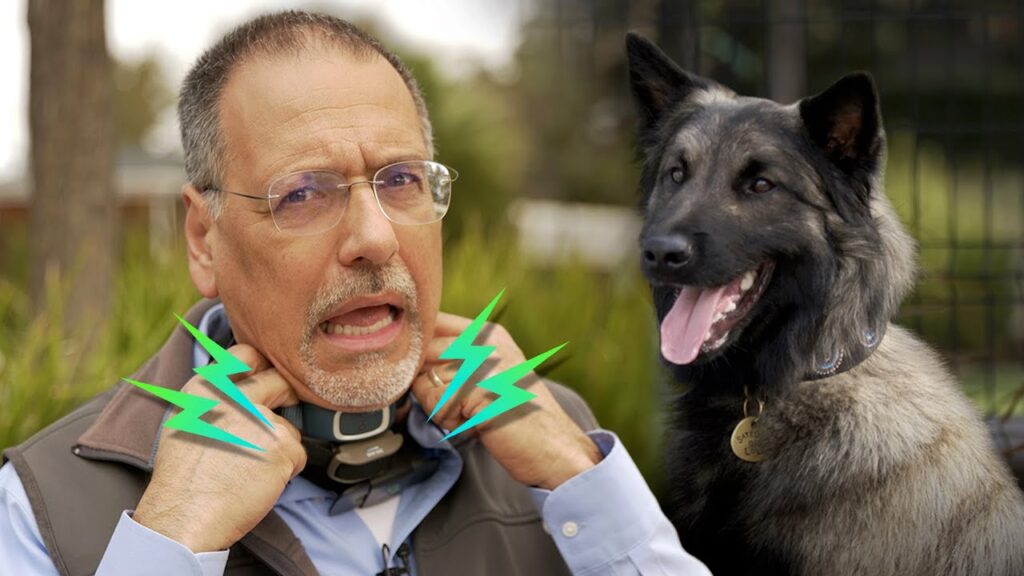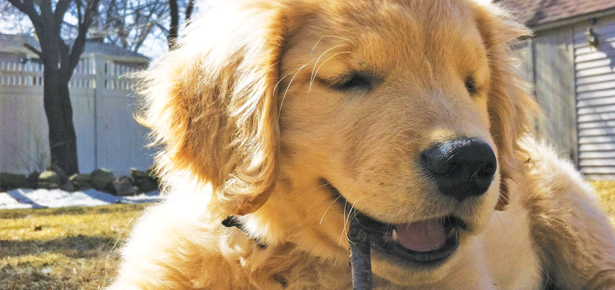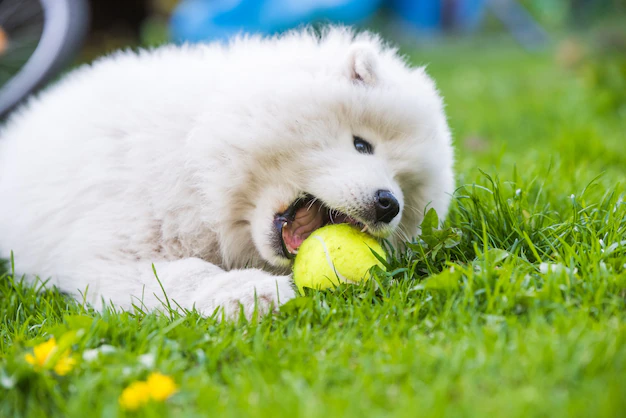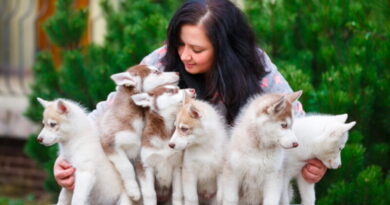Does My Dog Even Love Me?

My Dog Loves Me I Swear!
Our relationship with dogs is one of the longest and most enduring in human history. While we don't know exactly when or how we first started domesticating them, some scientists believe it could have been as long as 40,000 years ago. Since then, dogs have continued to play an important role in our lives, from helping us hunt mammoths to chasing after sticks. We've loved them all along the way, and apparently, the feeling is mutual. Dogs have an innate ability to form close bonds with humans, and they're one of the few species that seem to genuinely enjoy our company. In return for our affection, they provide us with companionship, loyalty, and unconditional love. It's no wonder they're often referred to as "man's best friend."
It has long been thought that the domestication of dogs was a result of human intent. We saw their potential as hunting partners and protectors and welcomed them into our homes and hearts. But a new study suggests that it may not have been entirely our choice. According to this theory, early dogs may have self-domesticated by hanging around human campsites in search of food scraps. Over time, they became more tolerant of humans and less fearful of being around us. This would explain why dogs today are so much more trusting and social than their wild cousins. It also helps to explain why we have such a strong bond with them. After all, it was their decision to come to us, and we have been rewarded with their loyalty and affection ever since.
Quick View
ToggleThe Review Of The Best Training Collar For Stubborn Dogs
Rocco Reviewed – The Best Training Collar for Stubborn Dogs...
Read MoreIt's no secret that dogs are loyal companions, but did you know that just the scent of their person is enough to make them happy? A 2015 study published in the journal Behavioural Processes found that dogs connect their owner's unique smell to pleasure. By utilizing functional magnetic resonance imaging (fMRI) scans - which measure brain nerve cell levels - the researchers got an inside look at how dogs responded to their humans' scent versus familiar dogs, unfamiliar dogs, and unfamiliar people. The team found that when the pups smelled their owners, it activated a reward center in their brain called the caudate nucleus. They didn't react the same to any other scent. This provides further evidence of the strong bond between dogs and their owners, and goes to show that a dog's love is truly unconditional. Who knew that such a simple act could bring so much happiness to our furry friends?
Dogs have been bred for centuries to be our loyal and loving companions. In return, we have developed strong bonds with them, and they are now an integral part of our families. One of the ways we express our love for them is by talking to them in a high-pitched voice, often using baby talk or dog-directed speech (DDS). And although it may sound silly to us, research has shown that dogs actually respond quite favorably to this type of communication. In a study conducted by the University of York, researchers found that dogs were more likely to pay attention and respond positively to DDS than when we spoke to them in a normal tone of voice. So next time you're talking to your dog, don't be embarrassed if you find yourself slipping into that high-pitched voice - they're just happy to hear from you!
Determining what causes certain behaviors is a tricky business. For one, genes are rarely the only thing at play in animals or humans. But the scientists behind the dog study, from Linköping University in Sweden, wanted to see if they could "track" a specific gene to a kind of dog behavior. To do it, they took 437 young beagles, none of whom had ever had any training; they'd all been raised in a lab in very similar conditions. They put them in a room with a female stranger and gave them a problem: three boxes with food inside, one of which had the lid locked shut. The dogs were capable of getting at the two first boxes easily, but the last one stymied them; there was no way they could do it on their own. The scientists observed that some dogs tried to figure out how to get the food for awhile and then just stopped trying; others never even bothered trying in the first place. After running some tests, the scientists found that the difference between these two groups of dogs was a genetic mutation that's common in dogs but rare in humans. The mutation affects a gene that's responsible for helping nerve cells send signals to each other; in other words, it affects
So Many Toys for Blind Dogs – We Reviewed
Rocco has a blind friend named Kelly so we checked...
Read MoreIt has long been assumed that dogs are more social than wolves because they were domesticated by humans. However, a new study suggests that there may be a genetic basis for this difference in behavior. The study found that dogs who are more social tend to have more DNA disruptions than their less social counterparts. The most social dogs were found to have disruptions in a gene that is associated with hypersocial behavior in mice. This suggests that the difference in social behavior between dogs and wolves may be due, at least in part, to genetics.
Dogs have been called man's best friend for centuries, and there's a good reason for that. Dogs are fiercely loyal, and they have the ability to form strong bonds with their human companions. But did you know that some dogs also share physical characteristics with their owners? It's true! According to research, humans tend to gravitate toward dogs that remind them of themselves. This phenomenon is most common with purebred dogs, but it can happen with mixed-breeds, too. And it's not just a coincidence - researchers believe that humans subconsciously choose dogs that have physical attributes similar to their own. So if you're overweight, chances are your dog is, too. Or if you have big eyes, your dog probably does, too. Of course, this isn't always the case - but it's interesting to think about!
Dogs not only mimic behavior, but they can sense your emotions through social eavesdropping. Dogs watch their humans often and have observed what works and doesn’t work. They are in tune with people’s emotions and facial expressions; the closer bond a dog and human have, the more likely the dog is to mimic. This is also called emotional contagion. Research has shown that if you have a personality trait like laid back or neurotic, your dog will mimic that trait, too. So, if you want a well-behaved dog, it's important to keep your cool around them. Dogs can also tell when you're happy or sad just by looking at your face. If you're frowning or have a concerned expression, they may try to cheer you up by bringing you their favorite toy or giving you a kisses. Next time you're feeling down, try spending some time with your furry friend - their positive energy is sure to rub off on you!
Best Tennis Balls for Dogs
Even Rocco can’t destroy the last pick of the best...
Read MoreOne of the best ways to understand your dog's behavior is to consult with a specialized dog trainer or psychologist. These professionals are equipped to help you identify the root cause of your dog's behavioral problems and provide guidance on how to change his behavior. While your veterinarian can provide you with some basic information on dog behavior, a certified professional trainer or applied animal behaviorist will have more comprehensive knowledge and experience. If you have a dog with severe or aggressive behavior, consulting with a specialized trainer is a good idea. By working with a trained professional, you can learn how to better understand and manage your dog's behavior.
Dogs are emotional creatures that bond deeply with other animals and humans. They feel a range of emotions, including love, fear, anger, joy, and affection. Studies show that dogs can discriminate the emotional expressions on human faces. They are thought to experience jealousy and anticipation. Anthropomorphizing can become a serious problem, but the complicated emotions dogs feel can’t be ignored. Dogs are intuitive animals that rely on instinct. They are sensitive to the emotions of their family members and other animals. Dogs play an important role in the lives of their owners and families.
A new study published today in the journal Current Biology has found that 8-week-old puppies with little exposure to humans can understand pointing and show sophisticated levels of social cognition in other tests. The study also found that each pup's genetic makeup was a strong predictor of its ability to follow a pointed finger to a hidden treat as well as the pup's tendency to pay attention to human faces. These findings suggest that dogs have a natural ability to understand and respond to human gestures, and that this ability is influenced by their genes. This research provides new insight into the evolution of dog-human social interactions and has important implications for our understanding of canine behavior and cognition.
So, yea, it's safe to say your dog really does LOVE you :).
The Review Of The Best Training Collar For Stubborn Dogs
Rocco Reviewed – The Best Training Collar for Stubborn Dogs...
Read More







Pingback: Make You Pup Smell Great with the Best Dog Cologne - Doggies List